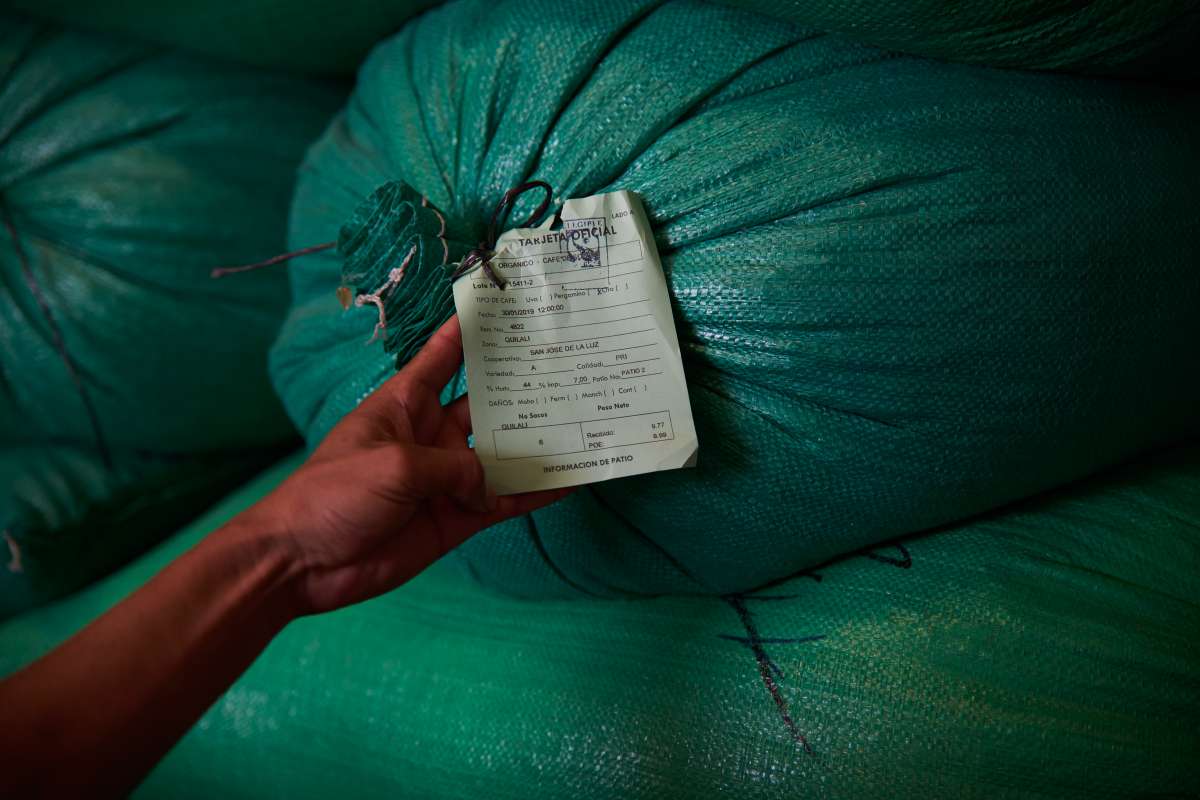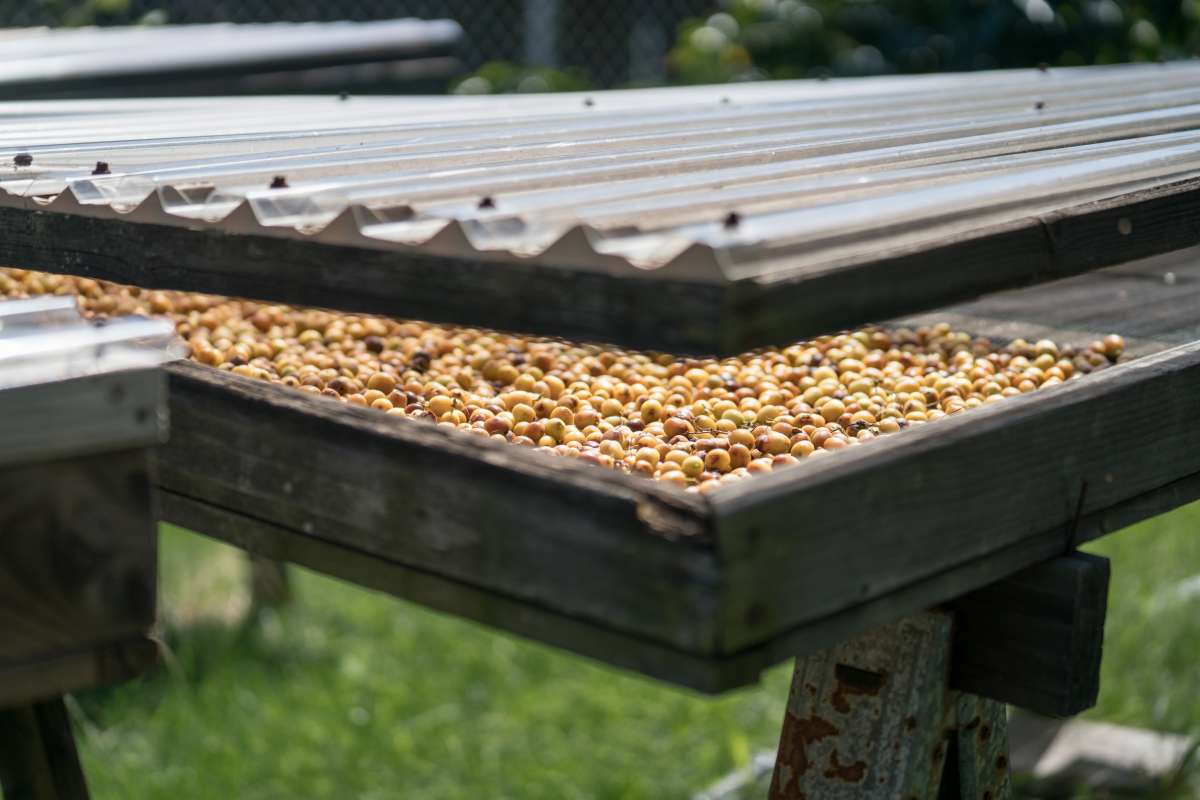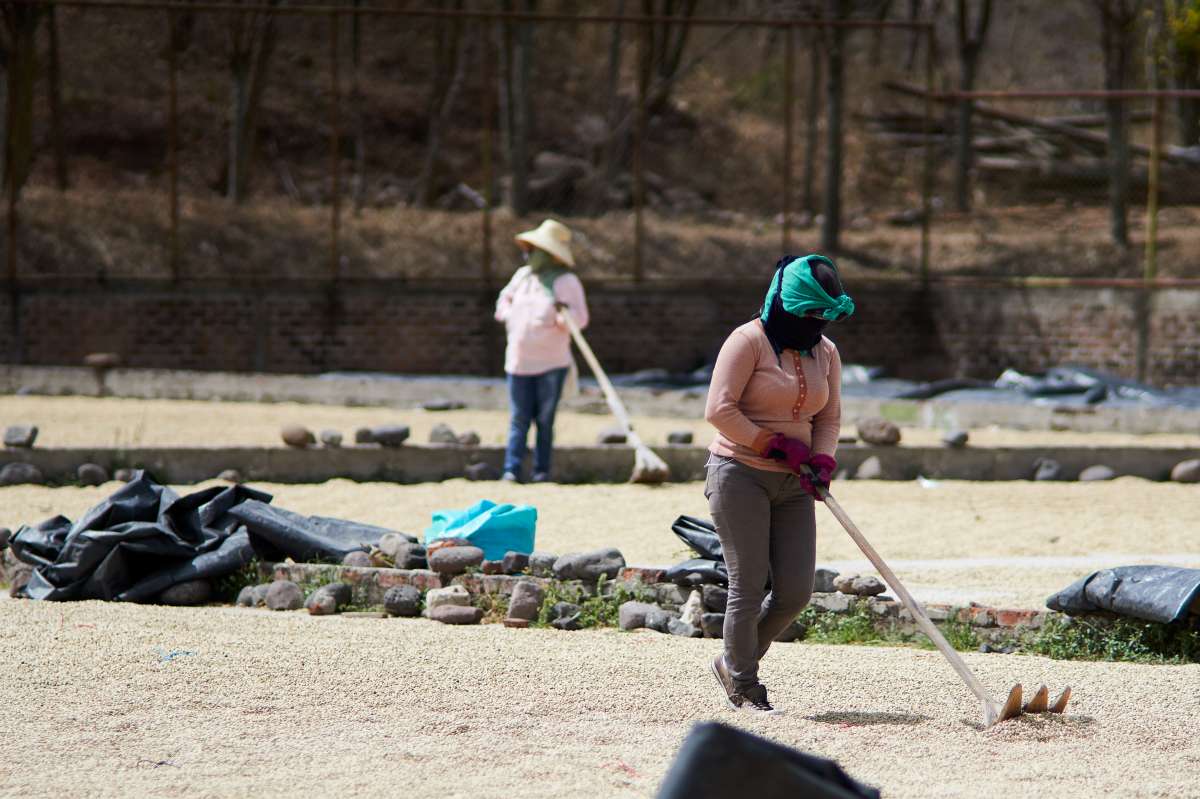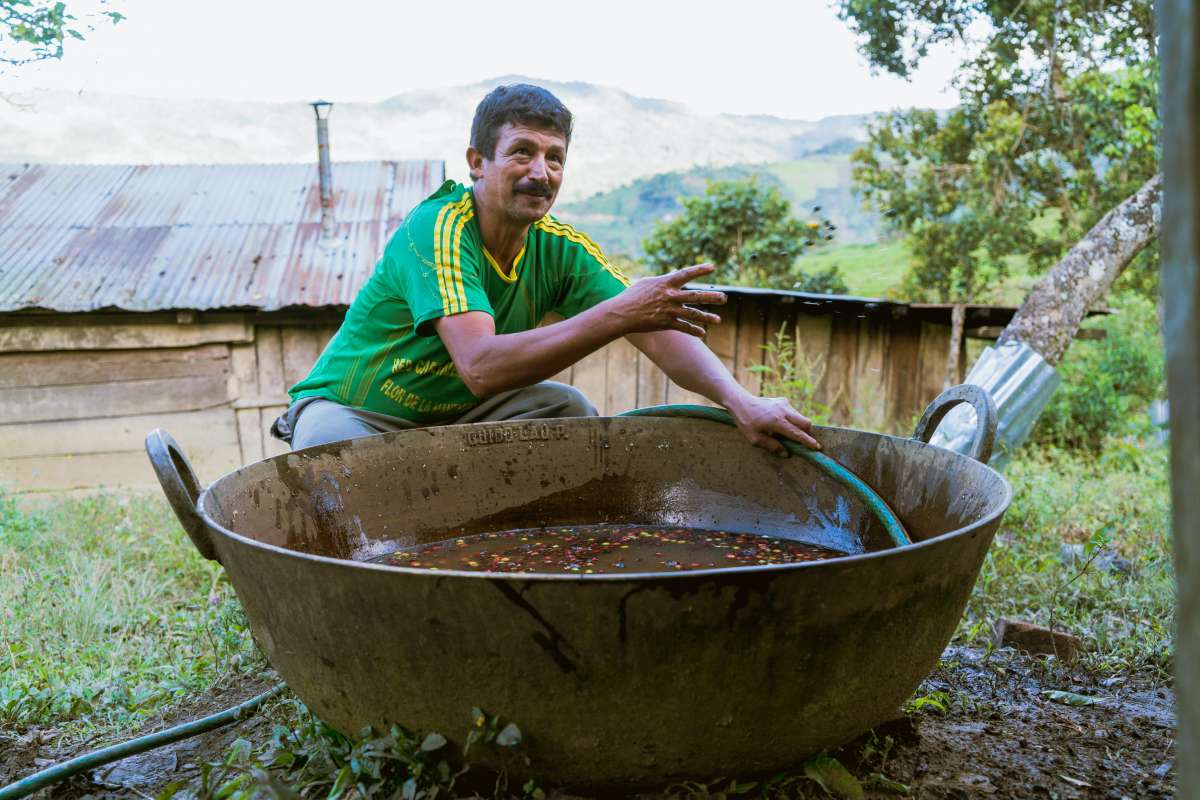
JANUARY 20 2022 · Written by Kevin Pasman
So good news and bad news. The bad news is that the price of your coffee is going up. Sadly there are a few causes that have combined to make it unavoidable to raise prices. Because we are all about transparency here at Mill Town, we want to make sure you know what is going on and why we do things. A lack of coffee supply has caused the coffee stock market to shoot up, and the additional price of high quality ‘specialty’ coffee to go even higher.
Even though we don’t pay stock market prices for our coffee, the price we do pay is tied to the market price.
To start, we need to talk about how the price of coffee is set. Unroasted coffee is traded on the stock exchange as a commodity just like wood, metal and oil. Like everything else on the stock market, the price follows the fluctuations of supply and demand. Unfortunately the coffee stock market does not differentiate the differences in the quality of coffee that it trades, so the price set by the stock market is always the price of the lowest quality coffee possible. From that minimum stock price the coffee can have additional costs added on to it. In order to get the high quality coffee designated as ‘specialty’ coffee that Mill Town uses, we need to pay extra for the coffee, up to several dollars per pound more. On top of that there is an extra charge added on for any extra certification or process that the coffee may have like organic certified, Fair Trade certified, Rainforest Alliance certified, decaffeinated and many many more. All these extra costs for the coffee are added to the stock market price to make the total cost of a pound of unroasted coffee.

COVID deaths and businesses closures have taken a toll on the supply of many goods, but the effect is much worse in many of the developing countries where coffee is grown. A number of the big coffee growing countries have had periods of civil unrest related to COVID and the government’s response (or lack of response) to it. The transportation industry is also struggling, and there are warehouses filled with coffee all over the world that are rotting away with no ships able to take it to the countries wanting it.
On top of COVID, climate change has heaped more damage into the coffee supply. For example Brazil had a severe drought this year and grew 30% less coffee than last year, with almost all their coffee having a lower quality than expected. Unfortunately Brazil is the second largest coffee growing country in the world and other larger coffee growing countries have also suffered poor crop conditions. Many farmers, seeing the effects of climate change on their delicate Arabica coffee plants, have switched to farming the more hearty (but low quality) Robusta coffee plant. This has reduced the supply of the ‘specialty’ grade coffee and increased that premium we pay to get the high quality coffees.
All these shortages of coffee and especially high quality coffee have caused the price of unroasted coffee to skyrocket. When Mill Town Roasters was created in November 2019, the coffee stock market price minimum price was $1.06 USD per pound.
As I write this the price is sitting at $2.39 USD, more than double what it was two years ago. The ’specialty’ quality coffee premiums have risen as well, also averaging around double the price from 2019. Our own transport, storage, roasting, packaging, selling and (sometimes) shipping costs have all had increases from COVID and other reasons. Sadly we can’t keep our prices the same and stay in business.
The average global cost to produce a pound of unroasted coffee for export is around $1.10 USD. This is purely the material costs for fertilizers, supplies, equipment and maintenance and does not compensate for the labour being done. The stock price of $1.06 USD per pound means that some coffee farmers were selling their coffee at a loss even before compensating themselves for labour. Coffee is grown in a very wide variety of places and ways and it is impossible to determine the exact amount that a coffee farmer would need to earn in order to cover the costs to produce coffee and pay themselves a living wage. That being said, it is generally considered any price under $2.00 USD per pound does not pay a small farm enough to live. When coffee was trading for such a low price on the stock market many producers were no longer interested in growing coffee. Coffee plants had been dug up to make room for other, more lucrative, cash crops to be grown.
A lot of coffee is grown on generational farms and the younger family members were giving up coffee farming for more stable and livable jobs.
When this happens the knowledge of good coffee farming practices and skills are lost as the older generations disappear. All of this is my way of saying that coffee sold at a low price is unsustainable. If producers can’t live off of coffee farming, they stop growing coffee.
Mill Town Roasters strongly believes in fairness in the way we buy our coffee, both as being a compassionate people and as a sustainable business practice.
We ensure that all the coffee we buy comes from producers who are fairly compensated for their product, paid a living wage and a premium on top to compensate for the hard work the farmer has done to produce a quality product. We refuse to participate in business practices that exploit anyone. However not all companies that buy coffee believe in this. Many are happy to pay the minimum possible price for their coffee. The market price of coffee rising above $2.00 USD per pound means that coffee farmers are guaranteed to be paid decent prices and can no longer be exploited. Living wages for coffee farmers means that people are once again looking to coffee farming as a good crop to grow and a decent way to earn a living.
The higher price may be unpleasant for us to pay, but for coffee farmers it means a return to being able to feed, shelter and clothe their families through coffee farming. And ultimately that means a stable supply of coffee for all of us in the future. The hard truth is that for years the baseline stock market price was exploiting many coffee producers around the world. It is a big investment for a farmer to change the crops on their farm, and a very big risk if they don’t know how to grow other crops besides coffee. Many coffee producers had no other choice but to sell their coffee for unlivable prices. While Mill Town has always paid above living wages for coffee, we are glad to see that the minimum price is rising to pay all farmers appropriately. Unfortunately the prices we do pay are tied to that stock market price, and as those prices go up ours have to as well.
Think of this higher price as an imposed ‘fair trade’ cost being paid to coffee farmers no matter who buys their coffee, and an investment in the future to ensure we can all continue to drink good coffee. We hope you agree with us that it is worth the price.
Signing off,
Mill Town Roasters





